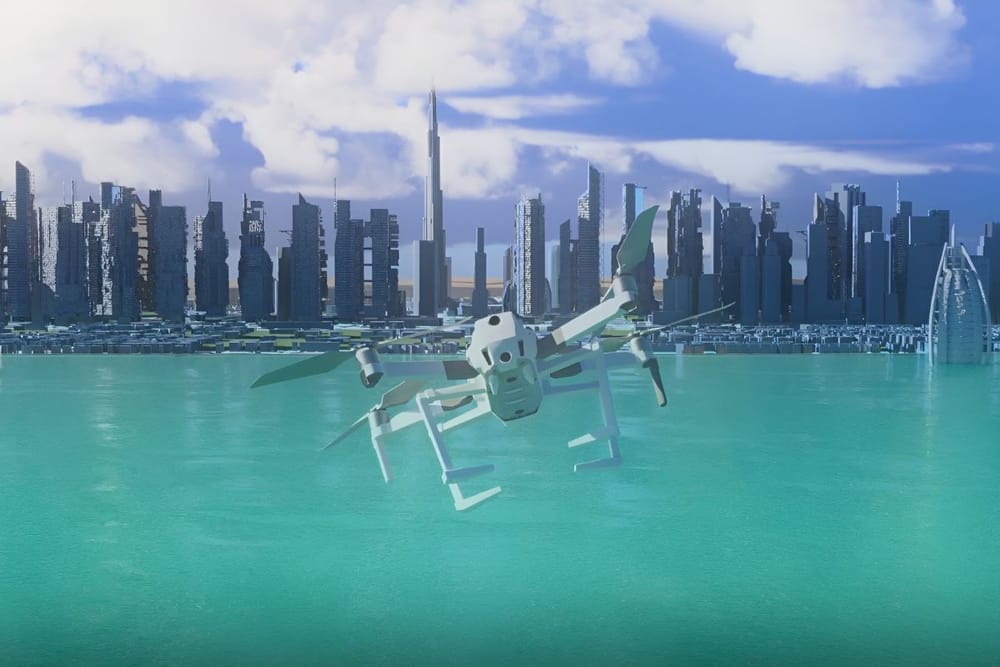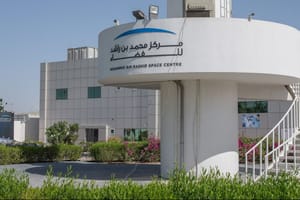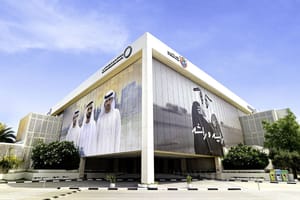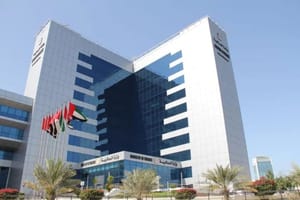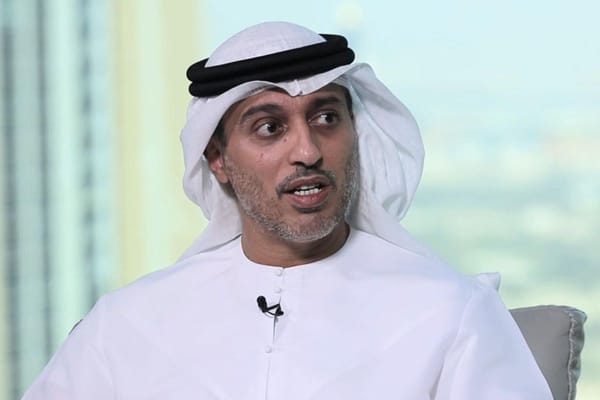Dubai Municipality, together with the Dubai Civil Aviation Authority, announced the successful completion of the first phase of the innovative ‘Dubai Horizons’ project, which aims to formulate planning standards for drone routes and dedicated landing zones in low-altitude airspace and designated airport locations in keeping with aviation and construction regulations.
The project significantly enhances Dubai’s preparedness to utilise drones and expand the scope of related services. It comes as part of a comprehensive planning and regulatory framework that supports Dubai’s objectives, strategies and long-term plans for air transportation.
His Excellency Dawoud Al Hajri, Director General of Dubai Municipality, affirmed that the ‘Dubai Horizons’ project is one of the major initiatives being carried out by Dubai Municipality in partnership with Dubai Civil Aviation Authority and other strategic partners. He said that the key objective of the project is to build on Dubai’s excellence in the air transportation sector while enabling its future aspirations and plans, including the creation of drone routes and exploring their applications on a global level.
The project further represents the municipality’s continuous efforts to embrace cutting-edge technologies and adopt new-age solutions. In doing so, it aims to create a leading geospatial system and implement innovative projects that support the readiness of the infrastructure as well as its capability to swiftly adapt to contemporary aeronautical mapping technologies. Additionally, the project seeks to enhance air navigation security and safety standards while also promoting a favourable investment climate in the sector.
“Once completed, the ‘Dubai Horizons’ project is set to substantially improve Dubai's readiness to use drones and air delivery services with clear and well-defined routes. By providing the necessary data for drone operations with utmost precision and in accordance with best international standards and practices, the project is set to reinforce Dubai’s leadership and competitiveness on a global level,”
HE Al Hajri added.
Dynamic investment climate
His Excellency Mohammed Abdullah Ahli, Director General of the Dubai Civil Aviation Authority, highlighted the significance of the project as a true representation of the Dubai Government’s ambitious vision and goals to strengthen the city’s global competitiveness across diverse sectors. The project also aims to enhance Dubai’s standing as a global hub for the drone industry while simultaneously creating a dynamic and attractive investment climate, he added.
HE Ahli said:
“Jointly, with Dubai Municipality and other strategic partners, we succeeded in completing the first phase of ‘Dubai Horizons’ project, which seeks to advance and support Dubai's plans to establish itself as a leading hub in proactively shaping and building the future. Our ‘Dubai Sky Dome’ initiative, which aims to transform Dubai into a virtual infrastructure for drone systems by connecting places and buildings through mini runways and airports throughout the emirate, further fosters future-oriented thinking and innovation.
“By creating an integrated business system for smart mobility services, air cargo, delivery services, surveying, imaging, and technical inspection within the emirate, the initiative allows public and private entities to offer services related to operating drone systems, which will significantly strengthen Dubai’s economy.”
The regulations governing the use of drones in the emirate of Dubai, particularly Law No. (4) of 2020, are significant to the advancement and progress of drone systems, HE Ahli emphasised. The law outlines regulations pertaining to the use of drones along with the responsibilities of the Dubai Civil Aviation Authority as well as all other relevant government entities that are strategic partners in achieving this ambitious vision.
Dubai Municipality will assist partners as part of the Dubai Horizons project by offering digital geospatial twin databases of Dubai, which comprise of 3D maps of all city landmarks and facilities. Additionally, the municipality will also provide advanced geospatial solutions, planning standards, and data inversion on a land classification and regulation list.
First phase at Dubai Silicon Oasis
The first phase of the project was completed in Dubai Silicon Oasis area during which a study, analysis, and evaluation of the existing regulations, legislation, policies, and laws pertaining to low-altitude airspace planning, drone operations, privacy policy, and air navigation safety were carried out.
Additionally, the first phase also witnessed meetings with concerned parties to determine the role of each party and to assess the 3D data, available planning requirements, and the technology used. These meetings were aimed at identifying and documenting the primary challenges and implementing a pilot project in the study area, evaluating the application of proposed planning requirements and determinants on the Dubai Silicon Oasis area. This was possible with the use of an intelligent system, by creating 3D maps of the planned routes for drones and aircraft landing locations.
Furthermore, a working group with all relevant parties was formed to provide recommendations for the ideal future scenario and to establish protocols that lay down clear steps to various processes and solutions.
Dubai Municipality had earlier signed cooperation agreements and a Memorandum of Understanding (MoU) with the Dubai Civil Aviation Authority and the Dubai Integrated Economic Zones Authority (DIEZ) to develop a framework for the Dubai Horizons project. The goal was to significantly benefit from mutual experiences to create a comprehensive plan for geographic data in Dubai. This includes geographic data for the infrastructure used by the drone industry and for the regulation of the sector in the emirate.
News Source: Dubai Media Office
